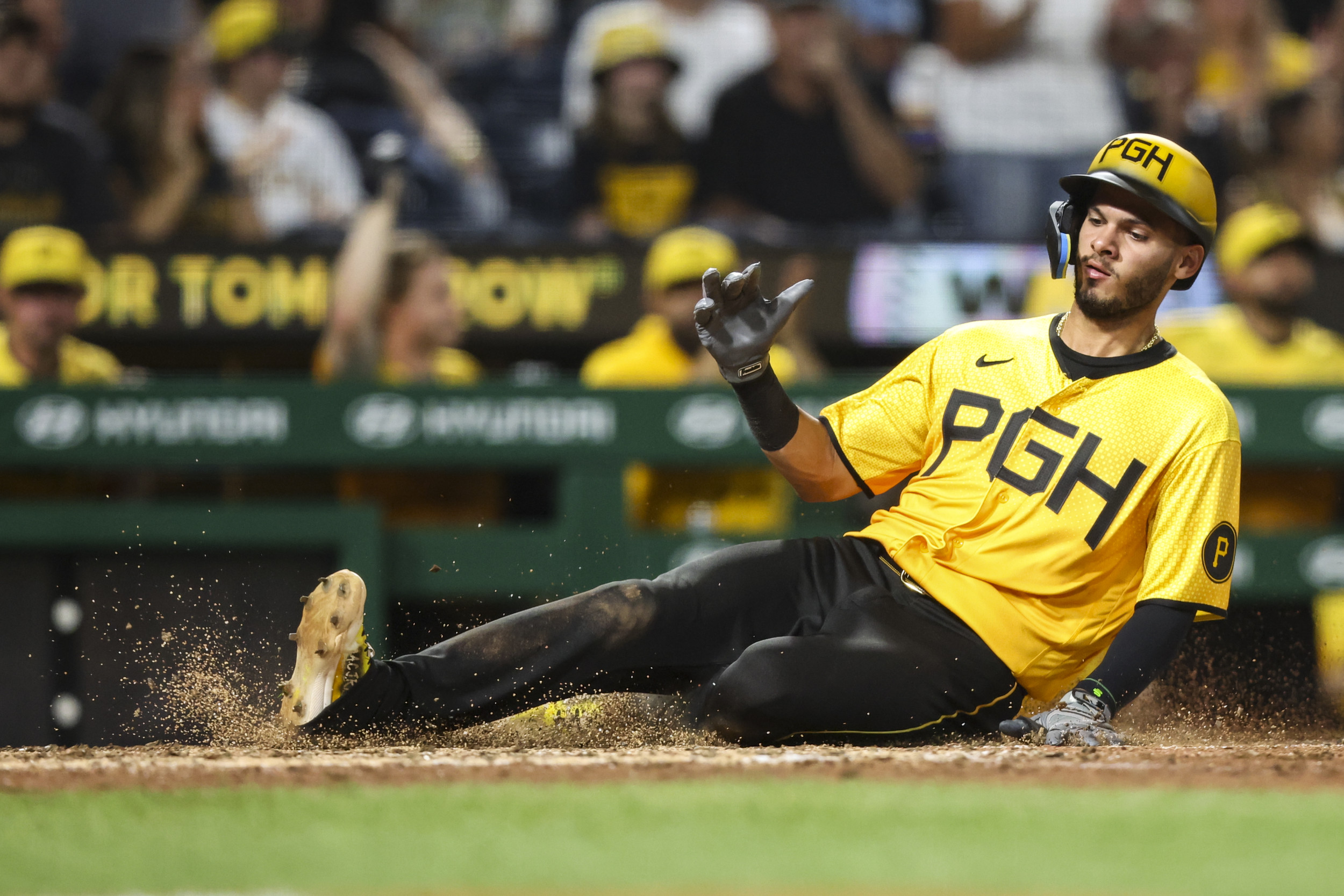Uncommon Knowledge
Newsweek is committed to challenging conventional wisdom and finding connections in the search for common ground.

According to multiple reports Monday, San Diego Padres utility player Tucupita Marcano is being investigated by Major League Baseball for violating the sport’s gambling policy, and he faces the possibility of a lifetime ban.
According to the initial report in the Wall Street Journal, Marcano has been accused of betting on games involving the Pittsburgh Pirates last season while he was on the injured list for that team.
Marcano, 24, is currently on the Padres’ injured list while recovering from knee surgery.
In parts of three major league seasons with the Padres and Pirates from 2021-23, Marcano has played 149 games and hit .217 with five home runs and 34 RBIs. He has seen time at five different positions and stolen seven bases in his career.
The Pirates placed Marcano on waivers after last season and he was claimed by the Padres on Nov. 2, 2023, reuniting him with the organization that signed him to a minor league contract out of Venezuela in 2016.
The history of baseball’s gambling-related controversies dates to the early 20th century, when it was common for players to wager on games with bookmakers outside of the ballpark. The American and National Leagues attempted to crack down on the practice under Kennesaw Mountain Landis, the former federal judge who was appointed baseball’s first commissioner in 1920.
Among Landis’ first acts: banning for life eight members of the 1919 Chicago White Sox team who were accused of throwing that year’s World Series to the Cincinnati Reds. The so-called “Black Sox Scandal” cast a pall over the sport and sent a warning to future players who sought to profit off their own performance through side bets: do it again, and you’re out.
Baseball’s strict no-gambling policy has claimed several players over the years. In 1947, MLB suspended the manager of the Brooklyn Dodgers, Leo Durocher, for a year for his relationships with gamblers.
In 1970, the league suspended Detroit Tigers pitcher Denny McLain for his gambling ties. Willie Mays and Mickey Mantle were later banned from baseball for earning money from Atlantic City Casinos in jobs that essentially amounted to “greeter.” Their bans were later revoked.
The most famous player banned under baseball’s policy is Pete Rose, the game’s all-time hits leader who remains under a lifetime ban at the age of 83. Rose was the manager of the Cincinnati Reds when he was accused of wagering on major league games; he only confessed to the crime more than a decade later. Rose has applied for reinstatement on multiple occasions but has been denied each time.
Against this backdrop, the outlook for Marcano is fairly cut and dried. If he is found guilty of gambling on baseball, his road back into the sport is all but nonexistent.
If he is cleared of any wrongdoing, Marcano will serve as yet another warning shot across the bow for a sport who has loosened its relationship with professional gambling operations in recent years. MLB (and some teams individually) have official business relationships with DraftKings and MGM, among others.
In March, the interpreter for Los Angeles Dodgers star Shohei Ohtani, Ippei Mizuhara, confessed to wagering millions of Ohtani’s money through an illegal bookmaker over a span of years. Mizuhara is expected to plead guilty in court this year.
Newsweek is committed to challenging conventional wisdom and finding connections in the search for common ground.
Newsweek is committed to challenging conventional wisdom and finding connections in the search for common ground.